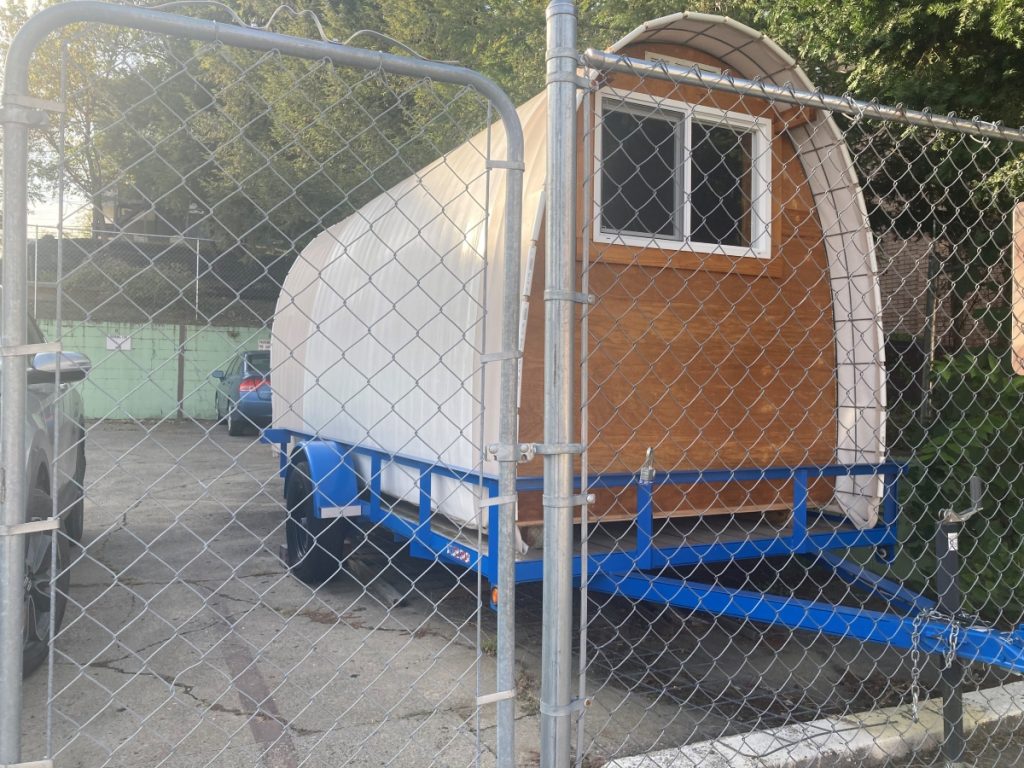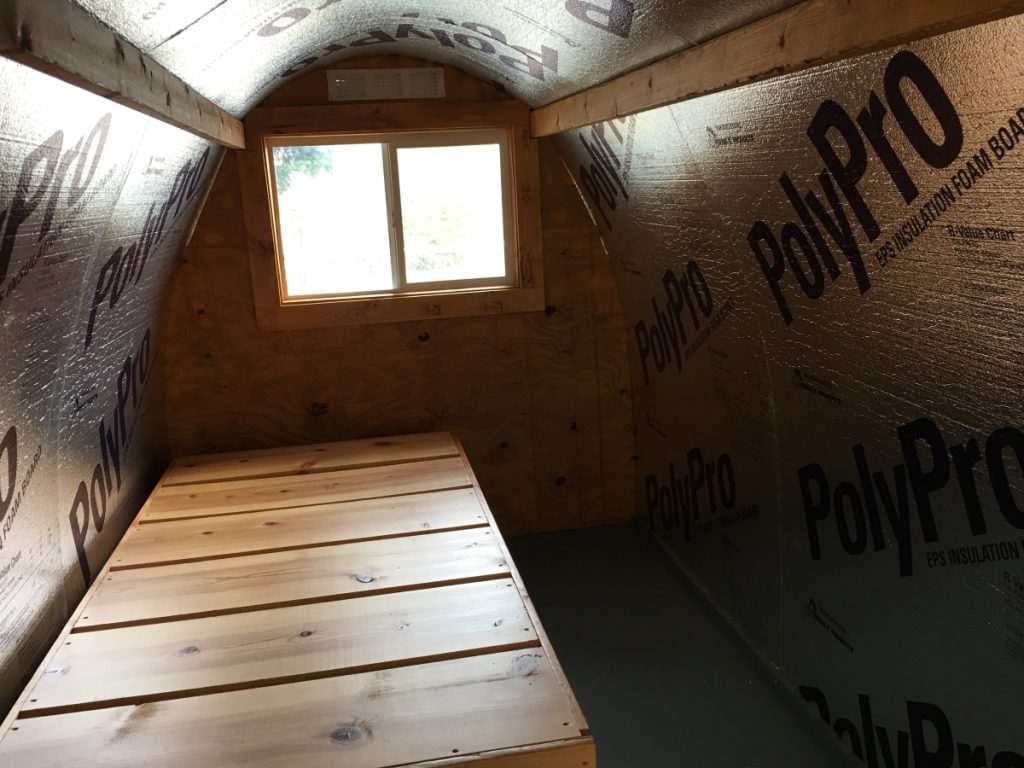News
A small Athens nonprofit is trying to build emergency homeless shelters before winter hits
By: Theo Peck-Suzuki | Report for America
Posted on:
ATHENS, Ohio (WOUB/Report for America) — From the outside, the emergency homeless shelter looks like a small greenhouse. The front and back are made of wood, with a tarp in an upside-down U for covering. In all, it’s about the size of a large pickup.
This is the first of what The Gathering Place Executive Director Ginger Schmalenberg hopes will be several Conestoga huts: insulated, secure shelters for people that are homeless in and around the city of Athens.
“There’s three main pieces,” explained Schmalenberg. “There’s the floor and then there’s the two big sidewalls, but then it’s just cattle wiring going over, it’s canvas, there’s all this insulation on the inside.”
With a total area measuring 6 feet by 12 and no plumbing, the Conestoga hut is modest for an emergency homeless shelter. Nevertheless, it is significantly safer and more secure than a tent in the woods.

The idea for the Conestoga huts comes from Community Supported Shelters, which is based in Eugene, Oregon. The organization sells manuals for constructing Conestoga huts on its website and describes the structures as “An Inexpensive and Durable Micro-Shelter.”
The word “inexpensive” is key: Unlike a full-scale homeless shelter, which requires significant investment, a hut takes relatively few resources to build and operate.
“It’s $2,500 if you would use all new materials, but two people can actually put this together in a day, maybe eight hours,” Schmalenberg said.
She estimated a hut built with reused materials could cost as little as $500.
Although a prototype hut already exists, the overall project is still in the early planning stages. Among the many unanswered questions is where the finished huts would sit. Schmalenberg said she’s in conversation with city and county officials on that topic.
Schmalenberg’s push to create cost-effective emergency shelter comes amid a significant observed uptick in homelessness in the area.
“After the pandemic was kind of slowing down, (homelessness) really started to pick up,” said Athens Chief of Police Nick Magruder.
Magruder said his officers have found homeless encampments that are two to three times the size of his roughly 12 by 12 office.
“There was one over by the highway that was actually dug into the ground. And it was like a little hobbit hole,” Magruder said.
There is broad agreement among those who work with low-income populations in the area that a lack of affordable housing is a key driver in the growing homeless population.
Magruder echoed that view.
“When you look at the cost of rent, you look at the cost of buying a house in Athens, it’s extremely difficult for anyone, let alone someone who’s working probably minimum wage,” he said.
Schmalenberg emphasized that the Conestoga huts are not meant to be an end unto themselves. The point, she said, is to ensure individuals waiting to receive a housing voucher or enter an affordable unit aren’t left unsheltered, especially during the winter months.

She worries this winter may be especially bad.
“We just had this huge event … and we gave out probably 30 sleeping bags, 60 pillows. We gave out 30 tents,” Schmalenberg said.
“I’m, all of a sudden, meeting new people, and I’ve never given away this many tents before,” she added.
Schmalenberg also hopes the visibility of the huts will change how homelessness is perceived in Athens.
“They should be seen. They shouldn’t be shunned, because how do you become part of a community if you think you are a community member that no one accepts?” Schmalenberg said.
Efforts to make homelessness more visible in communities can sometimes face resistance, but at least one business located close to The Gathering Place — where the prototype hut now sits — is supportive.
“My feeling is that, we’re supposed to welcome the homeless into our communities, we’re supposed to figure out a way,” said Donkey Coffee co-owner Chris Pyle.
Pyle also volunteers at GoodWorks, which operates a non-emergency homeless shelter in Athens. He said Donkey already welcomes GoodWorks residents.
“Some of them don’t buy coffee, but they just sit in with everybody else,” he said.

